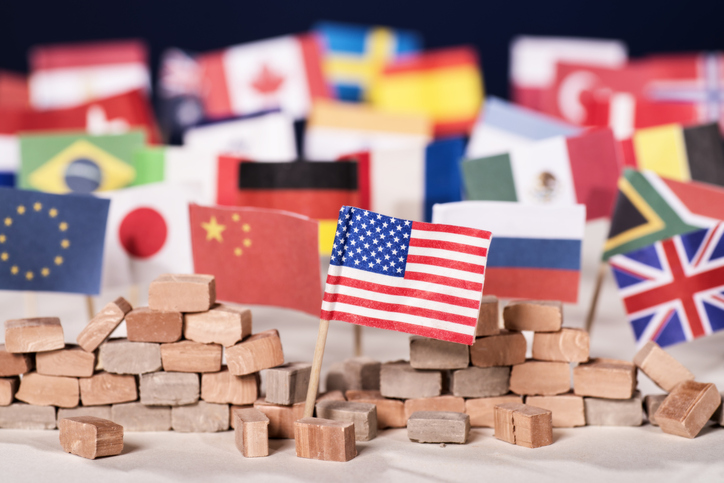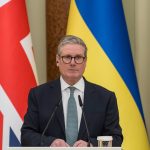A Comprehensive Overview of Donald Trump’s Foreign Policy: Key Actions and Controversies
Donald Trump’s tenure as the 45th President of the United States was marked by significant foreign policy decisions that reshaped the international landscape in both contentious and transformative ways. Under his “America First” doctrine, Trump’s foreign policy was centered around prioritising U.S. interests over multilateral commitments, reshaping longstanding alliances, and adopting a transactional approach to diplomacy. This article delves into the major foreign policy actions and controversies of Trump’s presidency, examining their far-reaching implications for global politics.
1. Withdrawal from the Paris Climate Agreement
One of Trump’s most emblematic foreign policy decisions was his withdrawal from the Paris Climate Agreement, an international accord aimed at combating climate change by limiting global warming to below 2°C above pre-industrial levels. Signed by nearly 200 countries in 2015, the agreement sought to unite the global community in the fight against climate change, with each nation committing to reduce greenhouse gas emissions.
Trump’s rationale for withdrawing from the agreement was rooted in the belief that it unfairly disadvantaged the U.S. by imposing regulations that would harm American businesses and workers. He argued that the accord placed significant burdens on the U.S. economy, particularly on sectors like coal, oil, and manufacturing. Additionally, he expressed concerns about the financial commitments required by the U.S., contending that other countries, particularly China and India, were not doing enough to curb their emissions.
The U.S. withdrawal drew international condemnation, with world leaders expressing disappointment over Trump’s decision. Environmental groups and activists warned that the move would undermine global efforts to combat climate change at a time when the planet was experiencing increasingly severe environmental crises. Despite Trump’s actions, however, several U.S. states and businesses vowed to continue adhering to the goals of the Paris Agreement.
Following Trump’s departure, President Joe Biden rejoined the agreement in January 2021, signalling a shift back towards international cooperation on climate change.
2. Exiting the World Health Organization (WHO)
In the wake of the COVID-19 pandemic, President Trump made the controversial decision to withdraw the United States from the World Health Organization (WHO), a UN body responsible for coordinating global health responses. Trump’s administration accused the WHO of mishandling the pandemic, particularly its early response to the virus, and of being unduly influenced by China, especially concerning the origins of the virus and its spread.
Trump also criticised the WHO for failing to institute necessary reforms and for its inability to remain independent from political pressures exerted by its member states. In May 2020, Trump announced that the U.S. would halt its funding to the WHO, accusing the organization of failing to implement essential reforms that would ensure accountability and transparency. This decision was met with strong opposition both domestically and internationally, with critics arguing that it would undermine global health initiatives and hinder the fight against the pandemic.
The U.S. is the largest financial contributor to the WHO, and the decision to withdraw from the organisation raised concerns about future global health crises and future pandemic preparedness. Ultimately, President Biden reversed Trump’s decision on his first day in office, reaffirming the U.S.'s commitment to global health cooperation.
Related: The Paris Climate Agreement: A Comprehensive Overview of Its Goals, Challenges, and Future Prospects
3. The Trade War with China
Another defining feature of Trump’s foreign policy was his aggressive stance on trade, particularly with China. Throughout his presidency, Trump sought to reduce the U.S. trade deficit with China, accusing the country of unfair trade practices such as intellectual property theft, forced technology transfers, and market manipulation.
In 2018, Trump initiated a trade war with China, imposing tariffs on billions of dollars' worth of Chinese imports. The tariffs targeted various sectors, including steel, aluminum, electronics, and consumer goods, and were aimed at pressuring China to address these alleged unfair practices. In response, China imposed its own tariffs on U.S. goods, leading to a tit-for-tat escalation that affected global trade.
Related: What Is A Tariff?
Trump argued that these tariffs were necessary to protect American workers, particularly in manufacturing sectors that had been adversely affected by Chinese competition. However, critics contended that the tariffs would lead to higher costs for U.S. consumers and harm American farmers, who faced retaliatory tariffs from China.
In addition to the trade war with China, Trump also renegotiated major trade deals, including the North American Free Trade Agreement (NAFTA). The U.S.-Mexico-Canada Agreement (USMCA) replaced NAFTA, introducing provisions that addressed labour rights, intellectual property, and digital trade, while also aiming to create more favourable terms for U.S. businesses in the region.
Related: Donald Trump's First Day in Office: Executive Actions and Policy Shifts
Related: Impact of U.S. Foreign Aid Suspension on Eastern Europe
4. Middle East Peace and the Abraham Accords
Trump’s Middle East foreign policy was marked by bold and unorthodox moves, including the recognition of Jerusalem as Israel’s capital, which had been a contentious issue in the Israeli-Palestinian conflict. However, perhaps his most notable achievement in the region was the brokering of the Abraham Accords, which resulted in the normalization of diplomatic ties between Israel and several Arab nations, including the United Arab Emirates (UAE), Bahrain, Sudan, and Morocco.
The Abraham Accords represented a historic breakthrough in Middle Eastern diplomacy, as Arab nations had long maintained a stance of non-recognition of Israel due to the ongoing Israeli-Palestinian conflict. Trump’s administration hailed the accords as a major success in the pursuit of peace in the region, opening the door to greater economic, cultural, and security cooperation between Israel and its Arab neighbours.
Despite the success of the Abraham Accords, critics argued that the agreements did not address the core issue of the Israeli-Palestinian conflict and that they represented a betrayal of Palestinian interests. The Palestinian Authority condemned the accords, viewing them as a blow to their long-standing goal of achieving statehood and securing East Jerusalem as the capital of a future Palestinian state.
Trump also oversaw the relocation of the U.S. embassy from Tel Aviv to Jerusalem, a move that was met with strong protests from Palestinians and many Arab nations. This decision was seen by many as a direct endorsement of Israeli sovereignty over Jerusalem, exacerbating tensions in the region.
5. Russia and the Ukraine Conflict
Trump’s foreign policy toward Russia was one of the most controversial aspects of his presidency. While he maintained a positive public rapport with Russian President Vladimir Putin, his administration did take action in response to Russia’s aggressive actions on the global stage, particularly in relation to Ukraine.
In 2014, Russia annexed Crimea, an action condemned by the international community as a violation of Ukraine’s sovereignty. In response, the U.S. and its European allies imposed economic sanctions on Russia. Trump’s approach to Russia was characterised by a desire to improve relations, with the president often signalling his openness to working with Putin and downplaying concerns over Russian interference in the 2016 U.S. election.
Despite his rhetoric, Trump’s administration did take some decisive actions against Russia, including the imposition of sanctions, the expulsion of Russian diplomats, and the provision of military aid to Ukraine. However, Trump was frequently criticised for being overly deferential to Putin, particularly following the 2018 Helsinki summit, where Trump appeared to side with Putin over U.S. intelligence assessments regarding Russian election meddling.
Regarding the ongoing war in Ukraine, Trump suggested that he could negotiate a peace deal between Russia and Ukraine, although his efforts to mediate were seen by many as insufficient, particularly as the conflict escalated into a protracted war. Trump also raised doubts about the effectiveness of U.S. military support for Ukraine, and in 2019, he was impeached by the House of Representatives over accusations that he withheld military aid to Ukraine to pressure the country to launch an investigation into his political rival, Joe Biden.
Related: Trump Criticises Putin for ‘Destroying Russia’ Over Ukraine War
6. North Korea and Denuclearization Talks
Trump’s dealings with North Korea were perhaps the most dramatic of his foreign policy ventures. In a stunning reversal from his earlier bellicose rhetoric, Trump agreed to meet with North Korean leader Kim Jong-un in 2018, marking the first-ever meeting between a sitting U.S. president and a North Korean leader.
The summit, which took place in Singapore, ended with both leaders signing a joint statement pledging to work towards the denuclearization of the Korean Peninsula. However, the agreement lacked specific details, and critics argued that Trump had given Kim Jong-un international legitimacy without securing any meaningful concessions.
Trump continued to engage diplomatically with Kim, holding additional summits in Hanoi and the Demilitarized Zone (DMZ) between North and South Korea. Despite these engagements, the denuclearization talks ultimately stalled, and North Korea continued to develop its nuclear weapons program. Trump’s “maximum pressure” campaign against North Korea was largely abandoned in favour of direct diplomacy, but the lack of tangible results left many wondering if Trump’s strategy had been effective.
The Legacy of Trump’s Foreign Policy
Donald Trump’s foreign policy marked a significant departure from traditional U.S. diplomacy, with a focus on unilateral actions, reducing international commitments, and prioritising American economic interests. His “America First” approach reshaped the U.S.'s role on the world stage, with consequences that continue to reverberate today.
While some of his foreign policy decisions, such as the Abraham Accords, were hailed as successes, his handling of issues like climate change, trade, and international alliances sparked significant controversy. Trump’s approach to Russia, North Korea, and the Middle East reflected his preference for direct engagement, but it also raised questions about the long-term effectiveness and consistency of his policies.
Ultimately, Trump’s foreign policy legacy is one of disruption and unpredictability. His actions challenged the status quo, prompting both praise and criticism, and left a lasting impact on U.S. relations with the world. Whether viewed as a defender of American sovereignty or as an isolationist president, Trump’s foreign policy will continue to shape global discussions for years to come.











